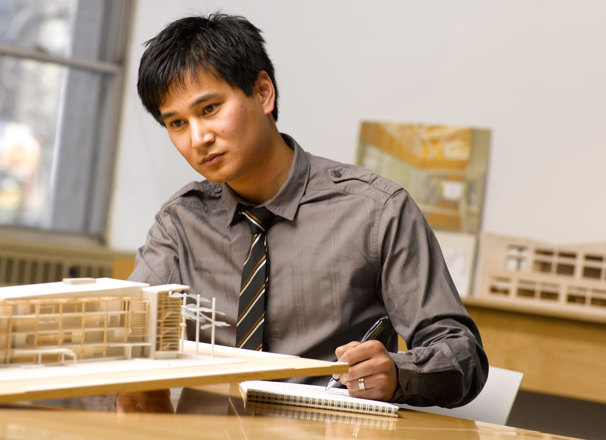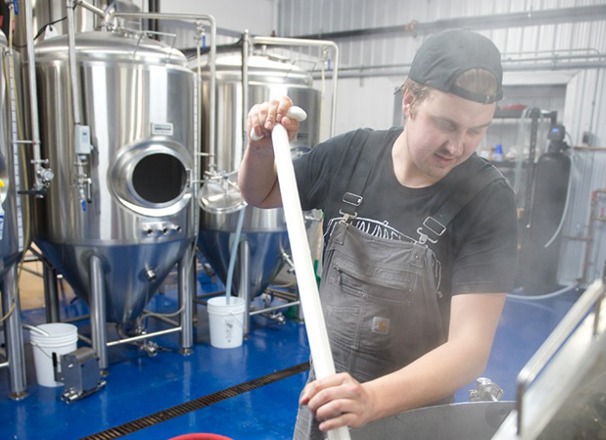When you realize you’re good at something, doing it tends to be enjoyable. The same is true when you really care about what you’re doing. While the work might be challenging, the end goal makes all the effort worthwhile.
Thinking about the things you are passionate about can give you a better understanding of the types of activities you enjoy and the environments in which you would enjoy working.
Aligning your work with your passion—your dreams, desires, hopes, and values—makes that work meaningful because it allows you to express your true self.
Your past provides clues about your passions
Significant events in your past can provide insight into your values, beliefs, interests, strengths, and dreams. These experiences stand out because of how they made you feel: good, satisfied, engaged, energized, or inspired. They can tell you a lot about what’s really important to you.
A significant experience could be:
- A school project that introduced you to an exciting new interest, even if it didn’t get you an A+
- A time when you helped a neighbour, friend, or classmate, even though your actions didn’t go viral on social media
- A time when you met a tight deadline, even though you were only 1 member of an entire project team
In the following videos, see if you can identify what significant experiences inspired Demi and Yasmin to explore particular career paths:
Exploring Career Paths: Pediatrics (3:00)
Demi is interested in pursuing a career as a pediatrician, a type of specialist physician. Through volunteering and job shadowing, she discovers how important it is to have an interest in science and enjoy working with children.
Career Inspirations: Cooking (2:34)
Yasmin enjoys cooking and baking. Watch her explore related educational and career options related to food, including apprenticeship as a cook or baker.
Whether you’re choosing an occupation, thinking about going to school, or changing your career focus, significant experiences can help you:
- Identify new opportunities
- Adapt to change
- Create a satisfying career
- Succeed in your chosen career
The 5 activities in this section will help you identify significant events and the passions that have shaped your life. The following tips will help you get the most out of the activities:
- Aim to identify at least 3 significant experiences.
- Look for what you like to do, rather than what you do best.
- Write down or record as many details as you can about each experience.
- Do many of the activities. The more you do, the more material you’ll have to work with.
- Reflect on how you feel about the experience. What anyone else thinks or whether anyone knows about it doesn’t matter.
Activity 1: What makes you proud?
Think about a time when you did something you were proud of. Don’t limit yourself to work or school—draw on all areas of your life, past and present: work, leisure, learning, home, creative pursuits, volunteering, and relationships with family and friends. For each experience, ask yourself these questions:
- What did I do?
- When did this happen?
- What was the result?
- Why did it make me proud?
You can use the Identify Your Experiences exercise in the Know Yourself section of CAREERinsite to record your answers.
Activity 2: The loves of your life
Divide your life into time periods of about 5 years. Try to remember what you loved to do, the things that interested you, and what you felt strongly about in each period.
Activity 3: Review your year
Look back over the past year. Find 3 activities or events from any aspect of your life that made you feel strong and engaged. Jog your memory by looking at your:
- Journals, agendas, or calendars
- Photos and social media posts
- Projects or products from work
- Assignments from school
- Performance reviews
- Family or company newsletters
Activity 4: Your strengths
Complete the following sentences:
- I felt strong when...
- I loved it when...
Activity 5: Happy talk
Recall recent conversations with friends and family. What are the things you talked about that made you feel happy?
Analyzing your significant experiences
Choose 3 of the significant experiences you identified through the above activities and take the time to analyze them:
- Describe your significant experiences in detail, either by writing about them or by discussing them with a friend. Describe:
- Where and when the experience happened
- Who was involved
- Exactly what happened
- What you did
- How you felt while doing it
- How you feel about the experience now
- Review your description of each experience. Answer the following questions:
- Why is this experience significant to me?
- What skills or knowledge did I enjoy using in this experience?
- What does this experience say about what I value?
- What does the experience say about what I do, could do, or want to do?
- Review the descriptions of your experiences and answers to the questions as though you were reading about someone else. You may find it helpful to write on sticky notes or in an electronic document where you can move them around. Look for clues and themes:
- Note words or phrases that are common to all these experiences.
- Consider the personal characteristics, skills, attitudes, values, and strengths that shaped these experiences. Check out this list of power words for ideas.
- Try grouping any notes that seem similar. Are certain groups larger than others? Do you feel more strongly about certain groups than others?
When you’ve completed this exercise, you’ll have a list of words that describe what matters to you: the things that motivated you in the past and will likely motivate you in the future.
Use these descriptions and what you’ve learned about yourself when you explore possible education programs, jobs, or occupations:
- Take your list of words and search for them on the internet to see what comes up. What happens when you add words like “training,” “course,” “career,” “business,” “occupation,” or “job” to your search?
- Brainstorm a vision of your future that includes the things that matter to you.
Your significant experiences inspire your future
Focusing on things that have mattered to you in the past can help you make choices about your future. Use your significant experiences—those moments when you’ve felt proud, strong, and energized—to help you move toward what you really want.
You are far more likely to thrive, not just survive, in your career if you consider these things when you are career building.




